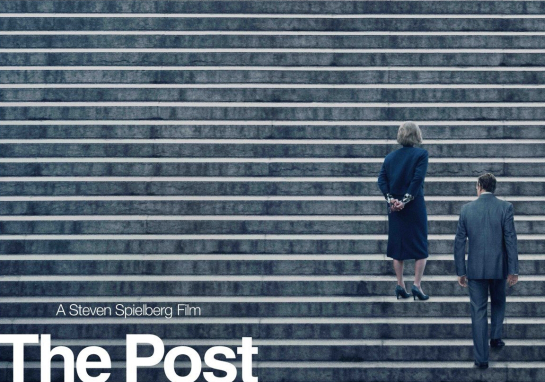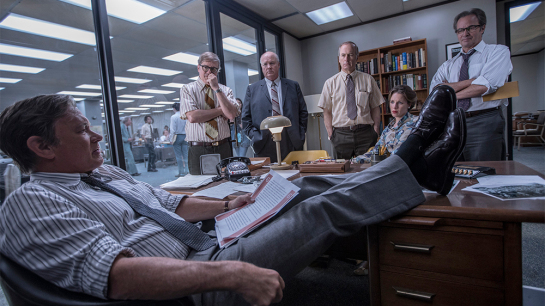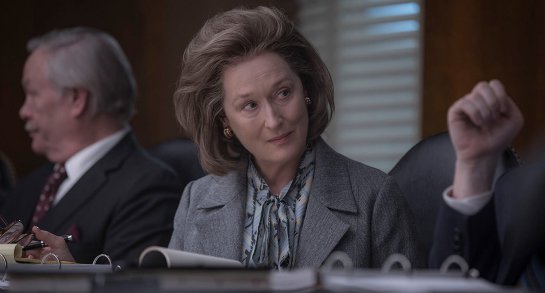
Steven Spielberg’s “The Post” is set in an era when the media (generally speaking) wasn’t egregiously compromised by the political pulls of the left or the right. It was a time (more often than today) when principle took precedent over ideology and the media took seriously the role of equally holding all elected officials accountable to the people. There is far less of that today, although I’m not sure Spielberg and company would agree with me.
“The Post” starts in 1965 with war analyst Daniel Ellsberg (Matthew Rhys) discovering government deception concerning Vietnam policy and progress. The story bolts forward a few years with Ellsberg stealing classified documents that reveal years of misinformation by the government dating all the way back to the Truman administration. He leaks the Pentagon Papers to the New York Times who run a front page expose before having their story shut down by a court injunction.

All of that is setup for the meat of the story which takes place in 1971, Washington D.C. Katharine Graham (Meryl Streep) has inherited The Washington Post newspaper following her husband’s suicide, but serving as its publisher and president has been a tough ride. Not counting her own personal lack of confidence, she’s also forced to navigate several obstacles from insecure board members to investors uncomfortable with a woman running the company. For the bulk of the film Spielberg does a good job tapping into the current red-hot women’s issues. It’s later that he moves from effectively showing us the inequality to spelling it out for us. But more on that later.
Her go-getter editor-in-chief Ben Bradlee (Tom Hanks) knows there is more to uncover so he sends his crack assistant editor Ben Bagdikian (a really good Bob Odenkirk) to track down the New York Times’ source. And when sensitive documents fall into their lap, Katharine must decide whether to let Bradlee print the story risking incarceration and the livelihood of her paper.
Spielberg deftly bounces between Katharine’s personal journey and Bradlee’s newsroom. Both are given plenty of time to unfold and develop. As you would expect, Streep is very good and completely in her element. It isn’t an extraordinary performance, but it’s work from her that we sometimes take for granted. Hanks is a different story. It’s not that he’s bad here. He feels off – as if he’s really stretching to sell us a character that Jason Robards did better (and won an Oscar for) 42 years ago.

Katharine’s stirring story and the thrilling newsroom drama come together in a tense and powerful meeting of the minds (and wills) which Spielberg unpacks to near perfection. But then something happens in the final fifteen minutes or so. In rapid succession the film begins dropping one corny, contrived ‘movie moment’ after another. Storytelling gives way to speechifying and the movie’s themes (previously explored through the story itself) are propped up by glaringly obvious scenes manufactured to the point of phoniness. And then you have Spielberg often straining to make a connection between the Nixon and Trump administration. Again, the material is there, but Spielberg sometimes feels the need to speak for it.
“The Post” does far more right than wrong. For a good three-quarters of his movie Spielberg brilliantly balanced two very different but equally enthralling stories. And for a while I was seeing it as a wonderful “All the President’s Men” companion piece. It’s just a shame the final act resorts to cheap scenes and sappy speeches that seem directly aimed at Oscar voters. But as his movie had already shown, Spielberg didn’t need all of that and the bulk of the picture is an enthralling experience.
VERDICT – 3.5 STARS





